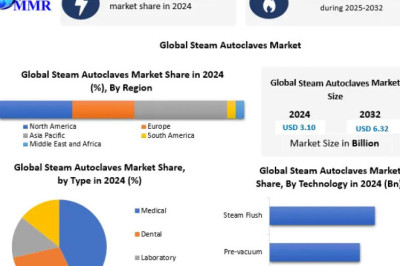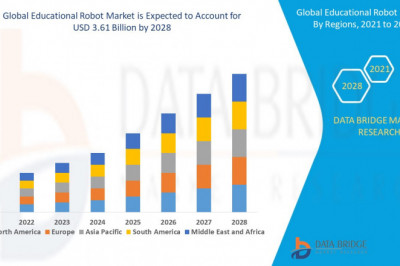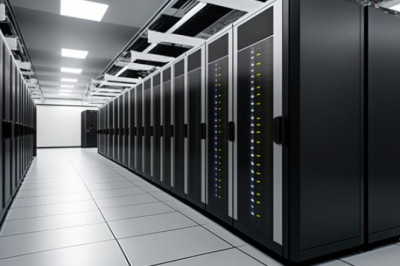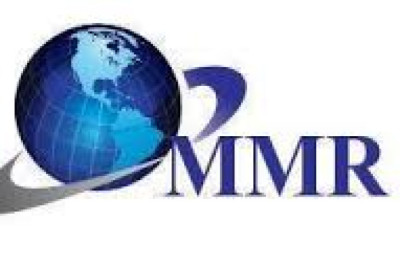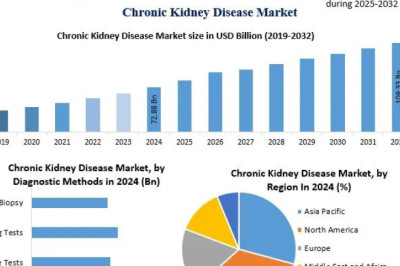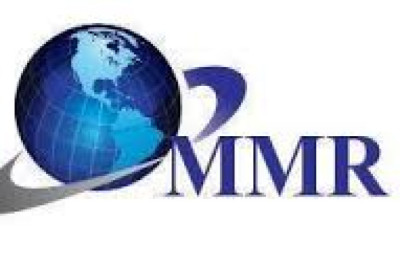views
In the intricate world of modern business operations, efficiency, integration, and streamlined processes are not just advantages but prerequisites for success. One of the most powerful tools facilitating this seamless orchestration of business functions is the ERP System. ERP System SAP, short for Enterprise Resource Planning System by SAP, stands as a pinnacle in the realm of enterprise software solutions, revolutionizing how businesses operate and compete in the digital age.
Understanding ERP System: A Comprehensive Overview
What is ERP System SAP?
This is an integrated suite of applications that enable businesses to manage various facets of their operations efficiently. From finance and human resources to supply chain and customer management, SAP ERP centralizes diverse functions into a unified system. Its robust capabilities empower organizations to optimize processes, enhance collaboration, and make data-driven decisions, thereby fostering sustainable growth.
SAP ERP is built on a modular structure, allowing businesses to choose and integrate modules based on their specific needs. This modular approach ensures that companies can customize their ERP solutions, tailoring them to match their unique requirements and industry demands.
Key Components of ERP System
SAP ERP comprises several modules, each catering to specific business functions. These modules include:
1. Finance (SAP FI):
This module focuses on financial transactions, accounting, and financial reporting. It allows businesses to manage their financial data, track revenue, expenses, and assets, and generate detailed financial statements.
2. Human Resources (SAP HR):
SAP HR manages various HR functions such as payroll, employee records, training, and workforce planning. It ensures that businesses have a comprehensive view of their employees' data, facilitating efficient HR management.
3. Supply Chain Management (SAP SCM):
SAP SCM handles supply chain processes, including procurement, production planning, inventory management, and logistics. It optimizes the flow of goods, information, and finances, ensuring smooth operations within the supply chain.
4. Customer Relationship Management (SAP CRM):
SAP CRM focuses on managing customer interactions, sales, and marketing. It helps businesses build strong customer relationships by providing insights into customer behavior, preferences, and feedback.
By seamlessly integrating these modules, SAP ERP ensures real-time data flow, enabling businesses to respond promptly to market demands and make informed strategic choices.
Why ERP System SAP Matters: Transforming Business Dynamics
Enhancing Operational Efficiency
SAP ERP streamlines operations by automating repetitive tasks, minimizing manual errors, and improving overall efficiency. By providing a centralized platform for data management, it eradicates silos and enhances collaboration across departments, ensuring a cohesive approach to business processes.
The automation capabilities of SAP ERP significantly reduce the time and effort required for various tasks, allowing employees to focus on more strategic and value-added activities. This increased efficiency translates into cost savings and improved productivity, providing businesses with a competitive advantage.
Facilitating Informed Decision-Making
In today’s competitive landscape, data is invaluable. SAP ERP collects, processes, and analyzes data from various sources, generating meaningful insights. These insights empower businesses to make data-driven decisions, anticipate market trends, and respond proactively to changing customer demands, thereby gaining a competitive edge.
The analytics and reporting features of SAP ERP provide businesses with a comprehensive view of their operations. By analyzing key performance indicators (KPIs) and trends, organizations can identify strengths, weaknesses, opportunities, and threats, allowing for informed strategic planning and execution.
Ensuring Compliance and Security
Adhering to regulatory requirements is non-negotiable in the business world. ERP System SAP incorporates robust security features and compliance protocols, safeguarding sensitive business data. By maintaining data integrity and ensuring adherence to industry standards, SAP ERP provides businesses with a secure and compliant operational environment.
Additionally, SAP ERP offers audit trails and user access controls, enabling businesses to monitor system activities and track changes to data. These features not only enhance security but also ensure accountability and transparency, crucial aspects of regulatory compliance.
Frequently Asked Questions
Q1: What distinguishes SAP ERP from other ERP systems in the market?
SAP ERP stands out due to its unparalleled flexibility, scalability, and extensive module offerings. Its ability to adapt to diverse industry requirements and business sizes makes it a preferred choice for enterprises globally. Moreover, SAP ERP is continuously updated to incorporate the latest technological advancements, ensuring that businesses always have access to cutting-edge solutions.
Q2: Is SAP ERP suitable for small and medium-sized businesses (SMBs)?
Yes, SAP offers tailored solutions like SAP Business One, designed specifically for SMBs. These solutions provide the same level of efficiency and integration as the enterprise version, scaled to meet the needs of smaller businesses. SAP Business One includes modules for accounting, sales, inventory, and CRM, offering SMBs a comprehensive ERP solution that enhances their operational capabilities.
Q3: How long does it take to implement SAP ERP?
The implementation duration varies based on factors such as the scope of the project, the complexity of business processes, and customization requirements. On average, ERP System SAP implementation can take anywhere from a few months to a year, ensuring meticulous configuration and testing for optimal results. It is essential for businesses to invest time in proper planning, including defining objectives, understanding workflows, and preparing data, to ensure a smooth and successful implementation process.
Q4: What kind of support and training does SAP provide during and after implementation?
SAP offers comprehensive support and training programs, including online tutorials, documentation, and expert consultations. During implementation, businesses receive guidance from SAP consultants, ensuring that the system is configured correctly and aligns with the organization's requirements. Post-implementation, continuous support ensures the smooth functioning of the system. Businesses can also opt for additional training for employees to maximize their utilization of SAP ERP's features and capabilities.
Q5: Can SAP ERP be integrated with other third-party applications?
Yes, SAP ERP can be integrated with a myriad of third-party applications and software solutions. SAP provides Application Programming Interfaces (APIs) and integration tools, enabling seamless connectivity with external systems for a holistic digital ecosystem. Whether businesses need to integrate ERP with e-commerce platforms, business intelligence tools, or specialized industry software, SAP ERP's flexibility allows for effortless integration, ensuring data consistency and efficiency across all platforms.
Conclusion: Embracing Excellence
In the fast-paced landscape of modern business, the ERP System SAP stands as a beacon of efficiency, integration, and innovation. Its transformative power reshapes how businesses operate, empowering them to thrive amidst challenges and seize opportunities. By centralizing operations, fostering data-driven decision-making, and ensuring compliance, SAP ERP paves the way for sustainable growth and enduring success. As businesses continue to navigate the complexities of the digital age, embracing ERP System SAP becomes not just an option but a strategic imperative, propelling organizations towards mastering their business operations and achieving unparalleled excellence. In the world of ERP solutions, SAP ERP remains a trailblazer, setting industry standards and enabling businesses to navigate the ever-evolving landscape of global commerce. Its comprehensive features, robust security, and adaptability make it an indispensable tool for enterprises of all sizes, ensuring that they not only survive but thrive in the competitive business arena. Embracing SAP ERP is not just an investment in technology; it's an investment in the future of business operations, marking.


